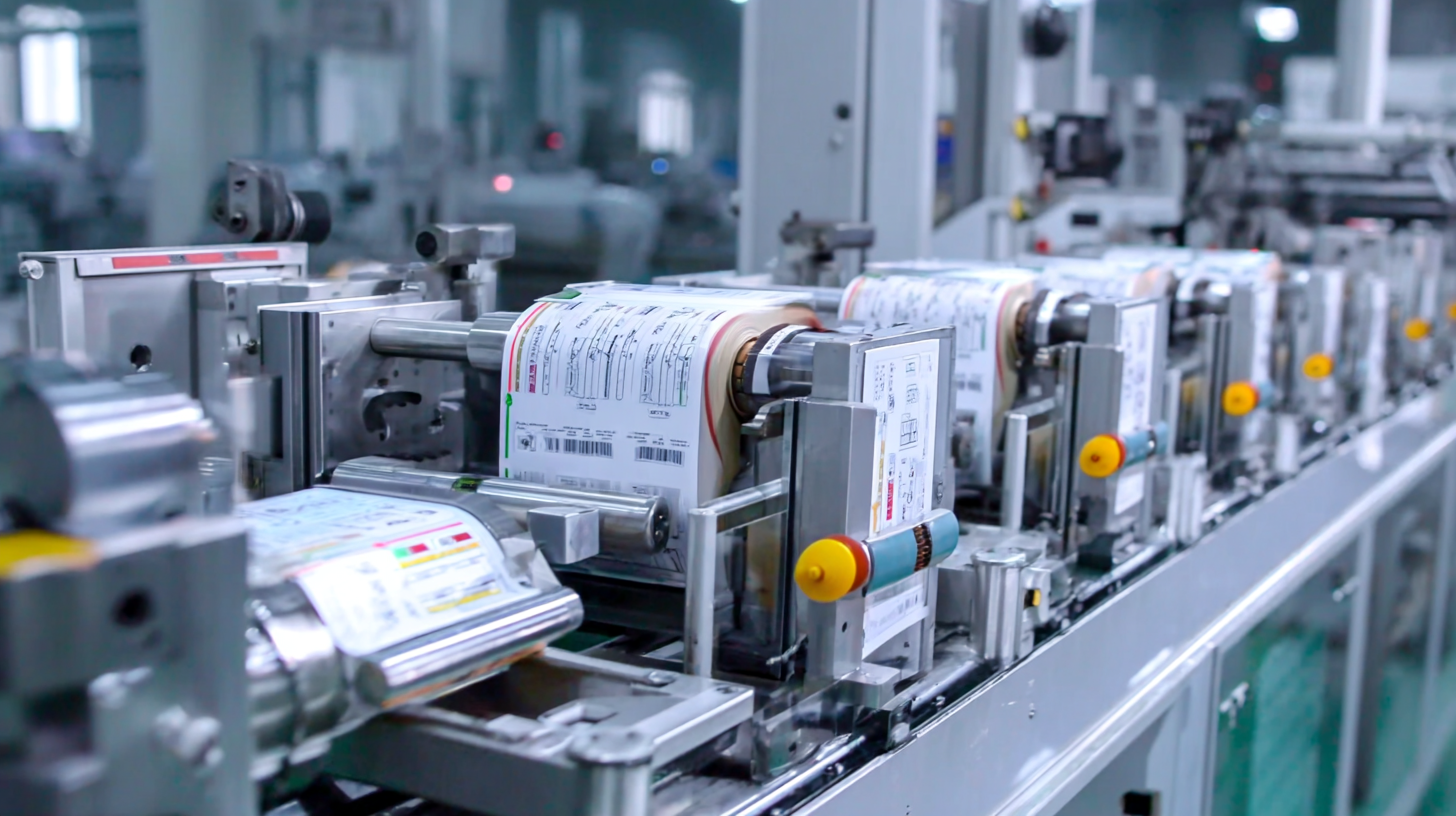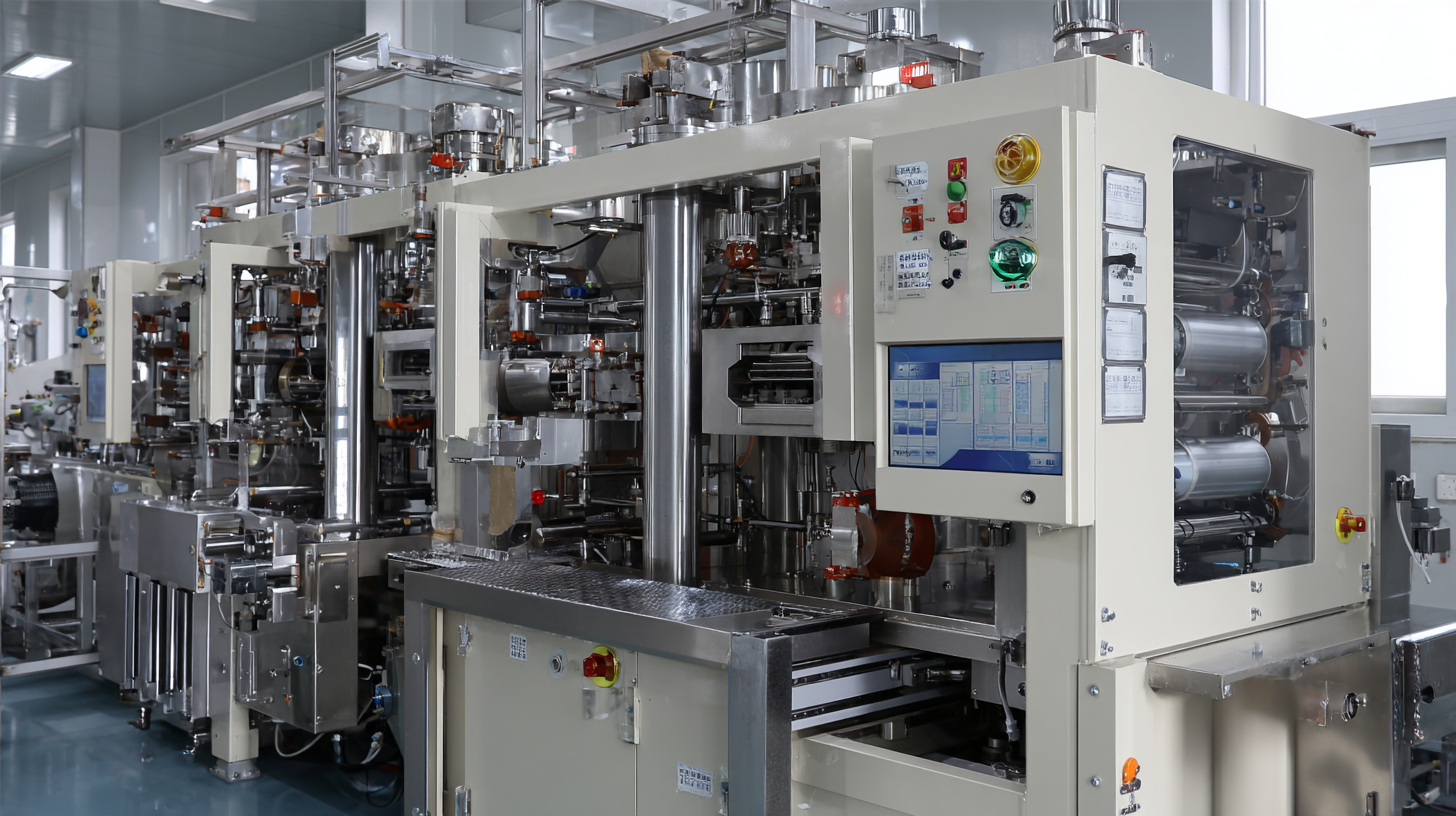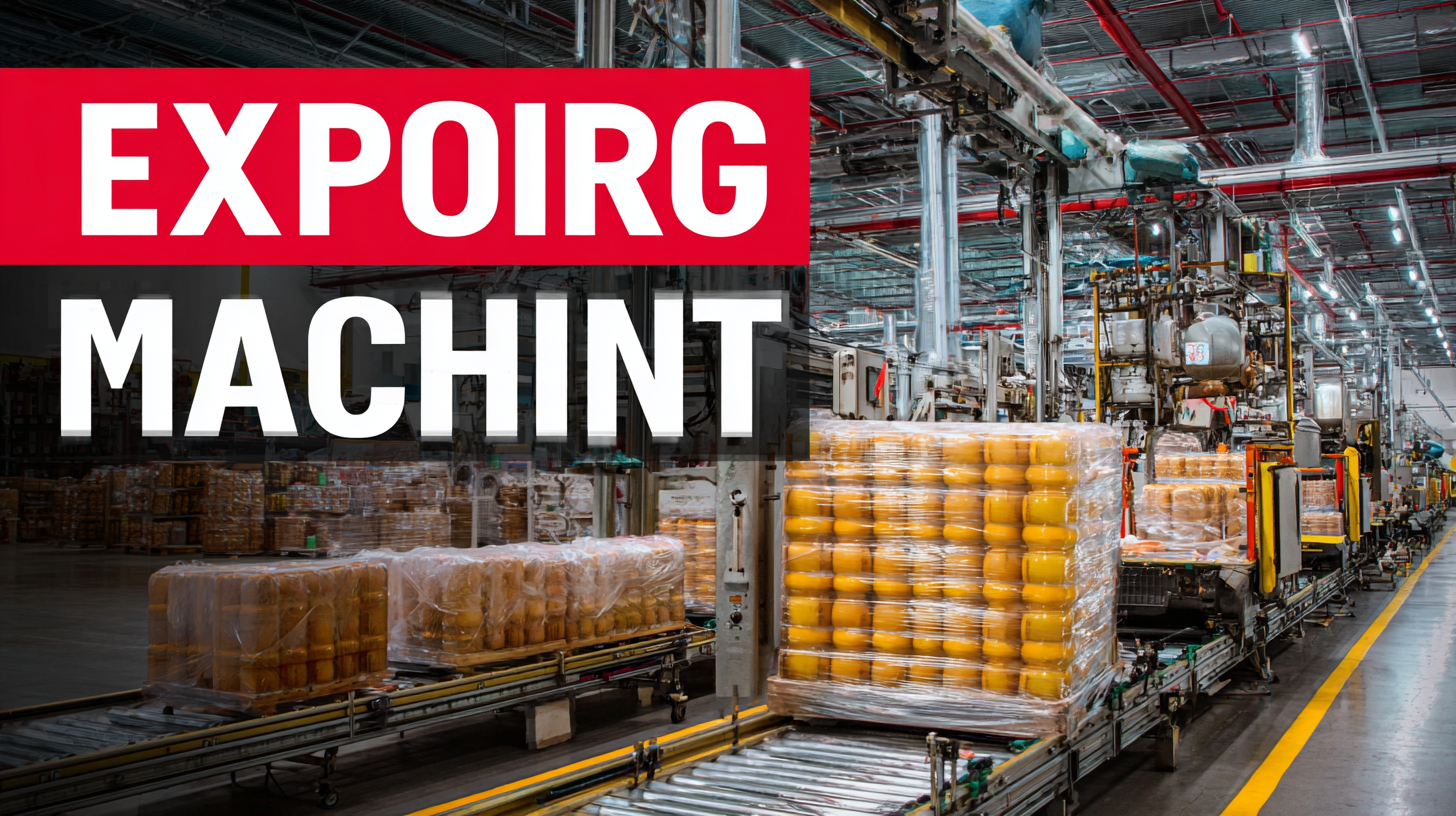Navigating Global Trade: How to Obtain Export and Import Certifications for the Best Food Packaging Machine
In the rapidly evolving landscape of global trade, securing the appropriate export and import certifications for a food packaging machine has become indispensable for businesses aiming to thrive in competitive markets. According to a report by Mordor Intelligence, the global food packaging market is expected to grow at a CAGR of 4.5% from 2021 to 2026, driven by increasing consumer demand for safe, convenient, and sustainable packaging solutions. As food safety regulations tighten globally, understanding the certification processes in different regions is crucial.

Companies must navigate a complex web of compliance requirements to ensure their food packaging machines not only meet local standards but also gain acceptance in international markets. This blog aims to shed light on the intricacies of obtaining necessary certifications, enabling manufacturers to leverage opportunities and expand their global reach effectively.
Understanding the Importance of Export and Import Certifications in Food Packaging
Export and import certifications play a crucial role in the global food packaging industry. These certifications ensure that food packaging machines meet the required safety and quality standards mandated by different countries. For manufacturers looking to enter international markets, obtaining these certifications is not just a regulatory hurdle but a vital component of business strategy. Without the proper certifications, companies risk being barred from markets or facing severe penalties.
Understanding the certification process can seem daunting, but it is essential for compliance and competitiveness. Certifications such as ISO, CE, and FDA not only signify adherence to health and safety regulations but also build consumer trust. For instance, food packaging machines that comply with these standards assure retailers and consumers that the products are safe and reliable. Given the growing emphasis on food safety and sustainability, having the right certifications can serve as a significant differentiator in a crowded marketplace, ultimately boosting brand reputation and facilitating smoother trade operations.

Key Types of Certifications Required for Global Trade in Food Packaging Machines
Exporting and importing food packaging machines requires navigating a complex landscape of certifications that ensure compliance with international safety and quality standards. Key certifications often include ISO 9001 for quality management systems, which demonstrates a commitment to consistent quality and customer satisfaction. Other essential certifications might include CE marking in the European Union to signify that products meet health, safety, and environmental protection standards, and NSF certification, which ensures that food handling machinery adheres to public health standards.
In addition to these, environmental certifications such as ISO 14001 play an increasingly critical role, particularly as global markets become more attuned to sustainability. Obtaining these certifications not only facilitates smoother trade across borders but also positions manufacturers as responsible players in the global supply chain. As markets for packaging machinery grow — with reports estimating revenues in the food processing and handling sectors to reach $175.1 billion by 2025 — understanding the importance of these certifications becomes vital for anyone looking to succeed in the competitive landscape of global trade.
Navigating Global Trade: How to Obtain Export and Import Certifications for the Best Food Packaging Machine
| Certification Type | Description | Issuing Authority | Region | Validity Period |
|---|---|---|---|---|
| ISO 22000 | Food safety management systems | International Organization for Standardization (ISO) | Worldwide | 3 years |
| CE Mark | Conformity to health, safety, and environmental protection standards | European Union | Europe | Indefinite, subject to compliance |
| FDA Approval | Regulation of food contact materials | U.S. Food and Drug Administration | United States | Indefinite, subject to compliance |
| BRCGS Certification | Global standards for food safety | BRC Global Standards | Worldwide | 1 year |
| NSF Certification | Health and safety standards for food equipment | NSF International | Global | Annual |
Step-by-Step Guide to Obtaining Export Certifications for Food Packaging Equipment
Navigating the complex landscape of export certifications for food packaging equipment can be essential for businesses aiming to enter international markets.
For instance, the UK's exit from the EU has reshaped trade dynamics, with an updated focus on regulations and certifications. According to recent industry reports, nearly 80% of food packaging machinery exports from the UK now require specific certifications to comply with international standards.
This means that obtaining proof of origin and ensuring adherence to trade agreements is more critical than ever.
For businesses targeting markets like Canada or Turkey, understanding the rules of origin is fundamental. Both regions have unique requirements that businesses must navigate to avoid delays and ensure compliance.
Studies indicate that improperly documented goods are among the top reasons for shipment rejections, leading to considerable financial loss—up to 30% of the product's value in some cases.
Therefore, a step-by-step guide to obtaining the necessary certifications can help streamline the export process, ensuring that companies are well-prepared to meet the demands of their target markets.
Navigating Common Challenges in Import Certifications for Food Packaging Machinery
Navigating the import certification process for food packaging machinery can present several common challenges that importers must strategically overcome. One of the primary hurdles is understanding the specific regulations and standards that apply in different countries. Each region may have unique requirements that dictate everything from materials used in machinery to safety features. Importers must conduct thorough research to ensure compliance with these varying standards, which can differ widely across borders.
Another challenge lies in the documentation required for import certifications. Importers often face difficulties in gathering accurate and complete paperwork, including certificates of origin, conformity assessments, and technical specifications. Failing to submit the correct documentation can lead to delays or even rejection of the shipment. Therefore, it is crucial for importers to work closely with manufacturers to obtain all necessary documents and verify their completeness before attempting to import food packaging machines. This proactive approach not only streamlines the certification process but also minimizes the risks associated with international trade complications.
Digital Solutions to Streamline Certification Processes for Food Packaging Machines
In the ever-evolving landscape of global trade, securing the right certifications for food packaging machines has become crucial. Digital solutions are revolutionizing the certification process, making it more efficient and streamlined. Reports from industry analysis indicate that the global food packaging machinery market is expected to reach $60 billion by 2025, underscoring the growing demand for certified, high-quality packaging solutions. With advancements in technology, companies can now manage their compliance requirements more effectively, simplifying the often complex certification processes.

To navigate this landscape, investing in digital certification management tools is essential. These tools automate documentation and provide real-time updates on compliance status, significantly reducing time to market. For instance, utilizing platforms that integrate with existing workflows can enhance collaboration across departments and ensure that all certifications are up-to-date.
Tip 1: Consider adopting a cloud-based certification management system to streamline documentation processes and enhance accessibility.
Tip 2: Regularly train your staff on the latest compliance requirements using digital resources to maintain operational efficiency and avoid costly delays in certification.
By leveraging these digital solutions, businesses can position themselves advantageously in the competitive food packaging machinery market.

